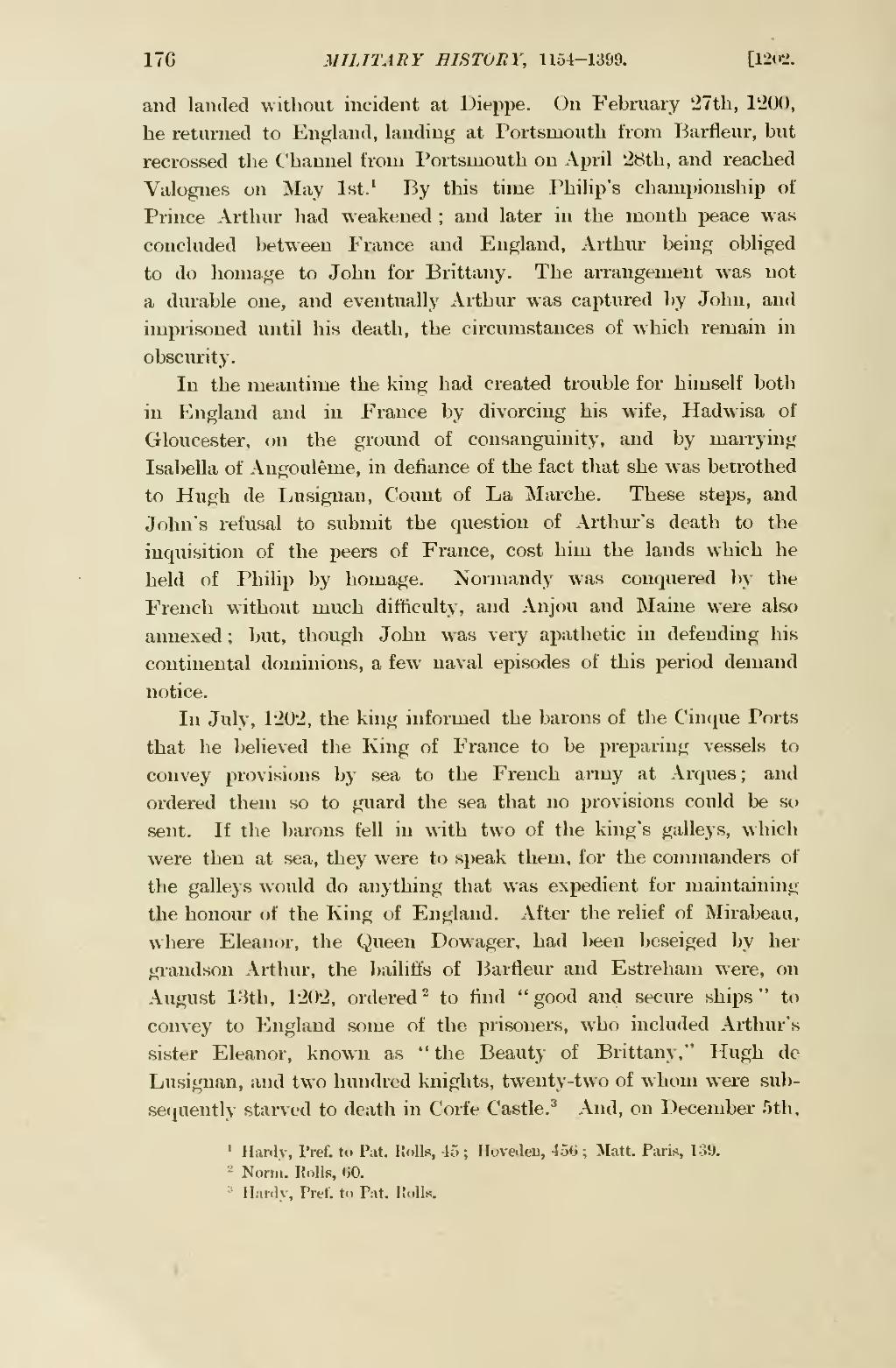and landed without incident at Dieppe. On February 27th, 1200, he returned to England, landing at Portsmouth from Barfleur, but recrossed the Channel from Portsmouth on April 28th, and reached Valognes on May 1st.[1] By this time Philip's championship of Prince Arthur had weakened; and later in the month peace was concluded between France and England, Arthur being obliged to do homage to John for Brittany. The arrangement was not a durable one, and eventually Arthur was captured by John, and imprisoned until his death, the circumstances of which remain in obscurity.
In the meantime the king had created trouble for himself both in England and in France by divorcing his wife, Hadwisa of Gloucester, on the ground of consanguinity, and by marrying Isabella of Angoulême, in defiance of the fact that she was betrothed to Hugh de Lusignan, Count of La Marche. These steps, and John's refusal to submit the question of Arthur's death to the inquisition of the peers of France, cost him the lands which he held of Philip by homage. Normandy was conquered by the French without much difficulty, and Anjou and Maine were also annexed; but, though John was very apathetic in defending his continental dominions, a few naval episodes of this period demand notice.
In July, 1202, the king informed the barons of the Cinque Ports that he believed the King of France to be preparing vessels to convey provisions by sea to the French army at Arques; and ordered them so to guard the sea that no provisions could be so sent. If the barons fell in with two of the king's galleys, which were then at sea, they were to speak them, for the commanders of the galleys would do anything that was expedient for maintaining the honour of the King of England. After the relief of Mirabeau, where Eleanor, the Queen Dowager, had been beseiged by her grandson Arthur, the bailiffs of Barfleur and Estreham were, on August 13th, 1202, ordered[2] to find "good and secure ships" to convey to England some of the prisoners, who included Arthur's sister Eleanor, known as "the Beauty of Brittany," Hugh de Lusignan, and two hundred knights, twenty-two of whom were subsequently starved to death in Corfe Castle.[3] And, on December 5th,

